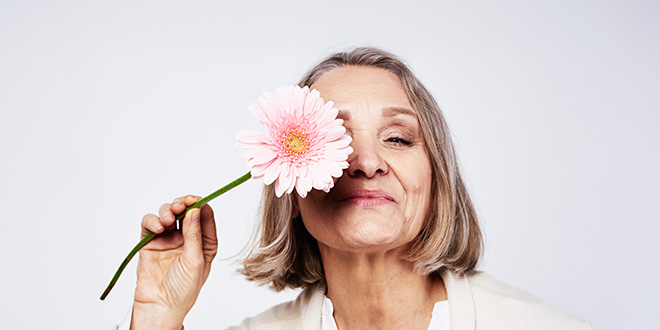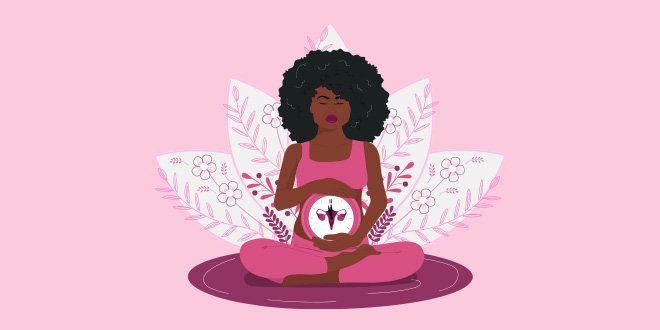New Intimina research of 4,000 women reveals the profound impact menopause has on body image, confidence and self-esteem
In recent years, menopause has become one of the most popular topics in women’s health discussions. It’s been a long wait, but it looks like the world is finally ready to break the stigma surrounding this often challenging stage of life that almost every woman experiences. Both the public and the media are increasingly covering menopause to provide support for women around the world. For many, this stage of life can bring discomfort with multiple symptoms. However, it is a normal transition that should be recognized as such. It is important for women to get through this period with access to accurate information and help when needed.
To better understand how menopause affects women today, the intimate wellness brand INTIMINA surveyed over 4,000 women aged 40 to 60 in the UK, Spain, France and Italy. The research focused on women who have experienced or are currently experiencing menopause, revealing the extent to which menopause reshapes women’s relationship with their bodies, exposing a major crisis of confidence and highlighting the need for greater representation and support.
Menopause appears to have a significant effect on women, with women who have gone through or are currently going through menopause saying they feel more negative (51%), unhappy (50%), judgmental (41%) and less confident (46%) since menopause.
Considering the impact menopause has had on women, perhaps this is not surprising 61% of these women are currently dissatisfied with their bodies, with 21% saying they are not at all satisfied.
Physical changes cause dissatisfaction
When asked what drives this decline, women overwhelmingly pointed to physical changes. The majority said weight gain (56%) and hot flashes or other visible symptoms (50%) were the biggest factors affecting their self-confidence, followed by changes in skin (28%), vaginal or sexual health (22%) and muscle tone (22%). Many also noted that thinning hair, breast changes, and facial aging are particularly difficult to treat.
Social pressures and lack of representation
The research found that these struggles are exacerbated by social pressure and lack of representation. Two in five women (41%) said they now compare themselves to younger women more than before and almost four in ten (39%) said they feel pressure from society and the media to maintain a youthful appearance. Strikingly, more than half (54%) said they don’t see enough menopausal women in the media they can relate to — highlighting how invisibility exacerbates an already vulnerable stage of life.

Coping strategies — And their limits
While many women are actively looking for ways to cope, from exercise and fitness (53%) to flattering clothes (43%) and skin care routines (30%), almost one in eight (12%) admitted nothing helps them manage these changes. Others rely on self-talk, conversations with peers or cosmetic treatments, but the overall picture is of women struggling to maintain their confidence with limited support.
Changing priorities around beauty and health
Despite these struggles, menopause also appears to alter values in meaningful ways. More than four in ten women (41%) said they now focus more on health than looks, while another 42% said they balance both equally. Nearly half (47%) also said their definition of beauty has evolved, with 26% less concerned with conventional standards and 23% saying they have actively redefined beauty for themselves.
A Cultural Blind Spot
The cultural picture remains disappointing. 41% of women believe that their culture views older women negatively, while only 14% believe that older women are valued positively. This lack of cultural recognition, combined with body changes and social pressure, is contributing to a decline in body acceptance: compared to their 30s and 40s, 39% of women now feel less accepted about their bodies, with only 28% saying it has become more accepted.
What still makes women feel beautiful
There are, however, sparks of positivity. Many women are finding beauty and confidence in new places, with 49% saying they feel more beautiful when they take care of their health and 41% crediting self-acceptance. A third said physical strength (33%) and inner peace (33%) played a central role, while others drew confidence from relationships, achievements and personal style.
The support women want
When asked what would help them feel better about aging, women pointed to clear solutions: 35% said they wanted better access to beauty and wellness resources specifically tailored to menopausal women, 33% wanted to see more authentic representation of older women in the media, and 32% highlighted the importance of mental health and self-esteem support. Just under a third also called for more open discussions about menopause. However, almost one in five women (19%) said no amount of resources would make a difference – a sign of how deep this crisis of confidence can go.
Dunja Kokotovic, Global Brand Manager at Intimina, said: “These findings reveal a sobering truth: for too many women, menopause comes with a loss of self-confidence and a deep sense of dissatisfaction with their bodies. While some women are redefining beauty in ways of empowerment, the majority still feel that they are overlooked, pressured or feel happier and invisible. during this life stage. It’s time to break down the taboos, change the way society views older women and provide real resources that support both body and mind.”
The survey was conducted by Censuswide, with postmenopausal/menopausal women aged 40-60 in the UK, France, Spain and Italy. The data was collected between 21.07.2025-28.07.2025. Censuswide holds and employs members of the Market Research Society and follows the MRS code of ethics and the ESOMAR principles. Censuswide is also a member of the British Polling Council.
